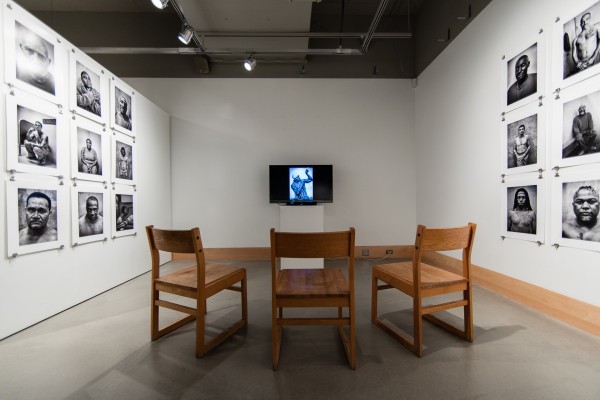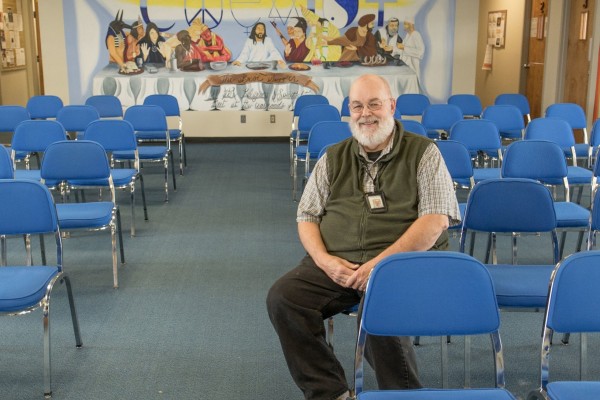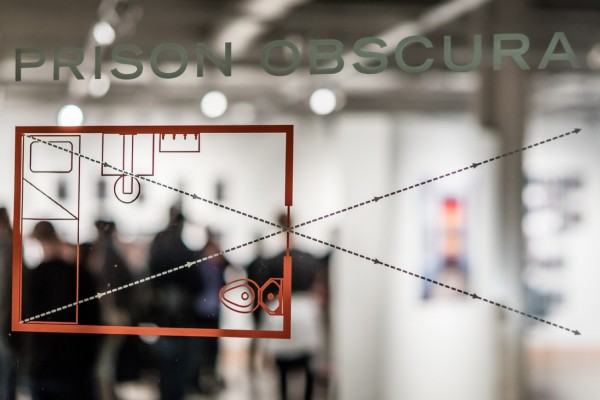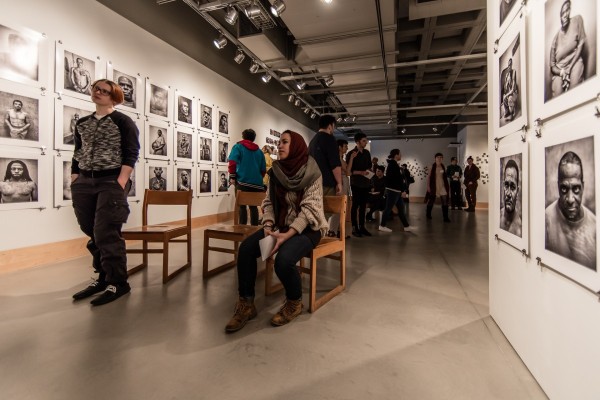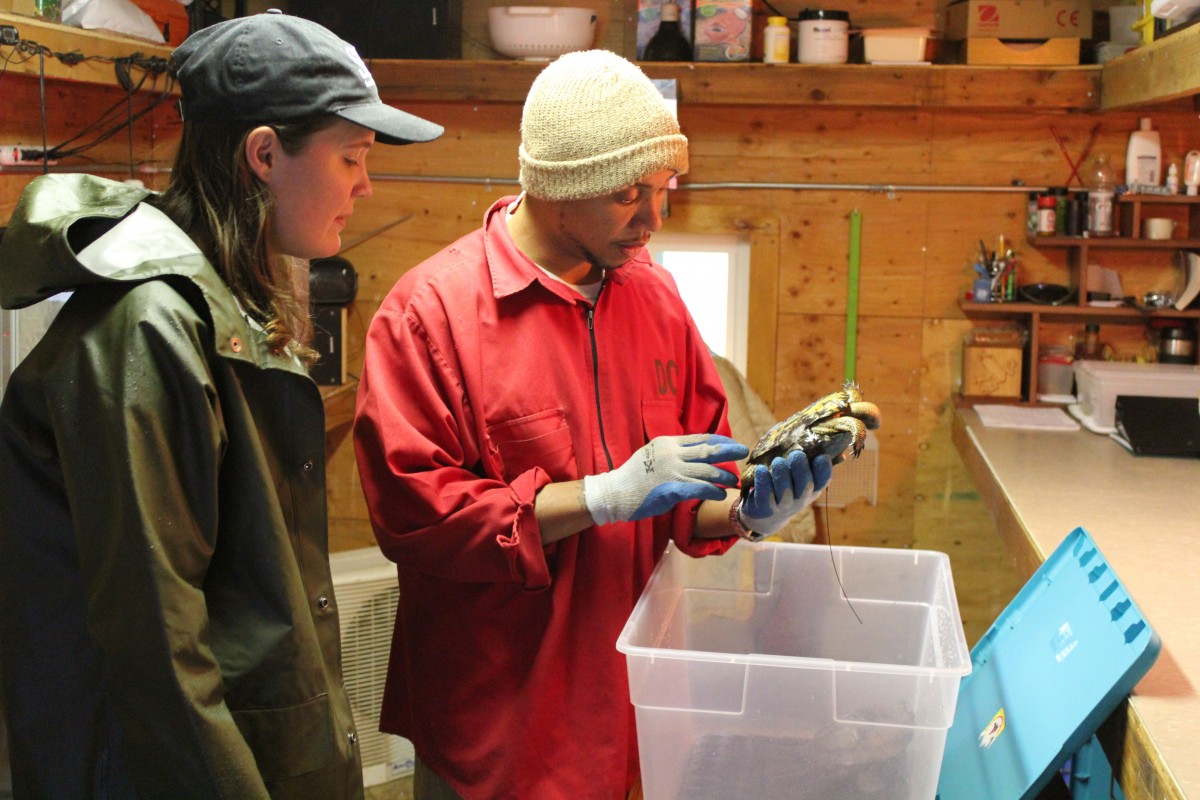
Fiona Edwards, MES grad ‘15 and western pond turtle program coordinator, and Jamar Glenn, SPP turtle technician, check out a turtle that has just returned from a veterinarian appointment. Photo by MES grad ’13 Andrea Martin.
What is SPP?
The Sustainability in Prisons Project (SPP) was founded by The Evergreen State College and Washington State Department of Corrections (WA DOC) to bring science and nature into prisons. We offer education, conservation, sustainable operations, and community contribution programs that involve hundreds of partner organizations and individuals.
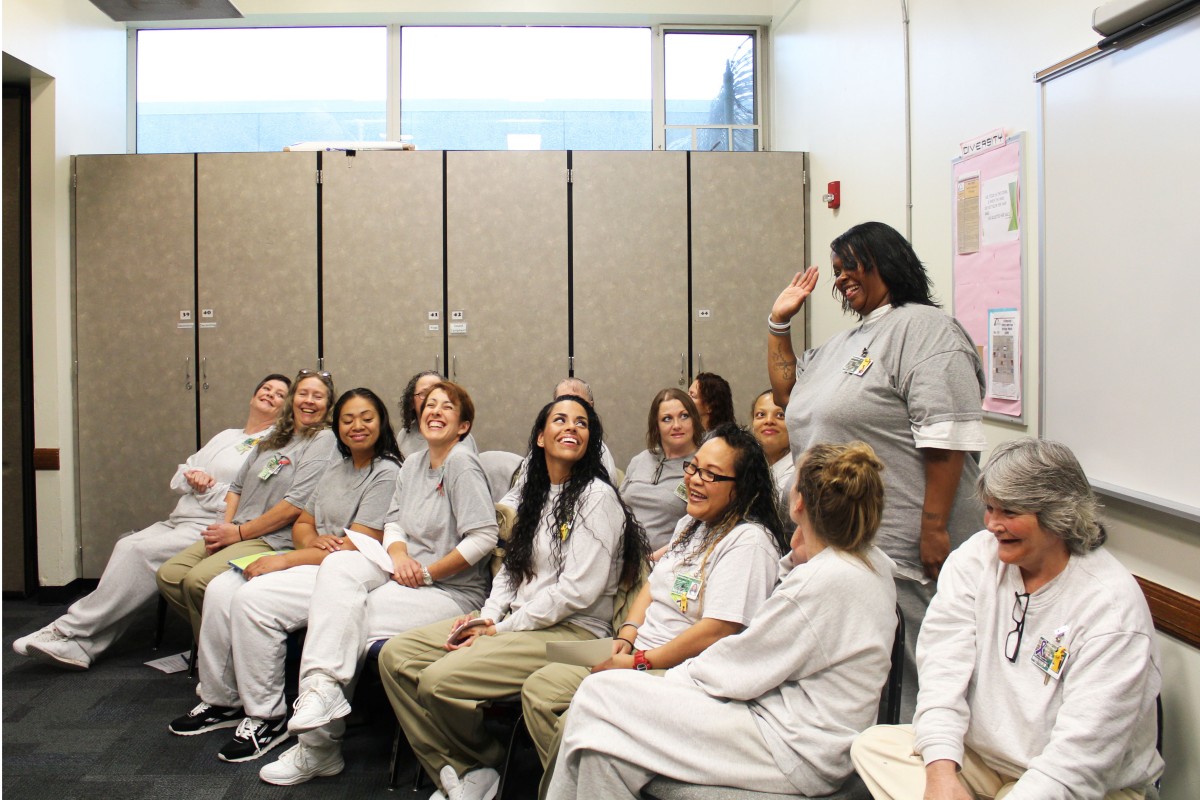
Nine of WA’s 12 prisons host Roots of Success, an environmental literacy class; here, Washington Corrections Center for Women celebrates its first class of graduates. The two class instructors (furthest left in the photo) are also incarcerated, and were certified to teach the class by the curriculum’s creater, Dr. Raquel Pinderhughes of University of San Francisco. Photo by Evergreen graduate Joslyn Rose Trivett.
For Evergreen, SPP’s programs allow students, faculty, and staff to practice science, sustainability, and restoration in a highly collaborative setting, and to learn from folks outside academia. For WA DOC, SPP’s programs bring in education, attention, positive energy, and meet the needs of underserved audiences. For everyone involved, the programs challenge us to learn across cultural groups and expertise, and the experience has the power to transform lives.

MES graduate students and SPP program coordinators Emily Passarelli and Liliana Caughman had a chance to meet the SPP-funded chickens at WA Corrections Center for Women. Photo by Paula Andrew.
SPP started small in 2003, and has grown and evolved enormously. Each initiative is shaped to benefit everyone involved, and that requires continuous adaption to needs, resources, and limitations. Programs at each facility are unique and ever-changing. Now all 12 Washington State prisons are part of SPP, and our innovative approach is internationally famous.

Lecture Series students work from samples brought in for a nature drawing workshop, presented by Evergreen faculty and SPP Co-Director Carri LeRoy. Photo by MES student Tiffany Webb.
SPP embodies Evergreen’s way of learning
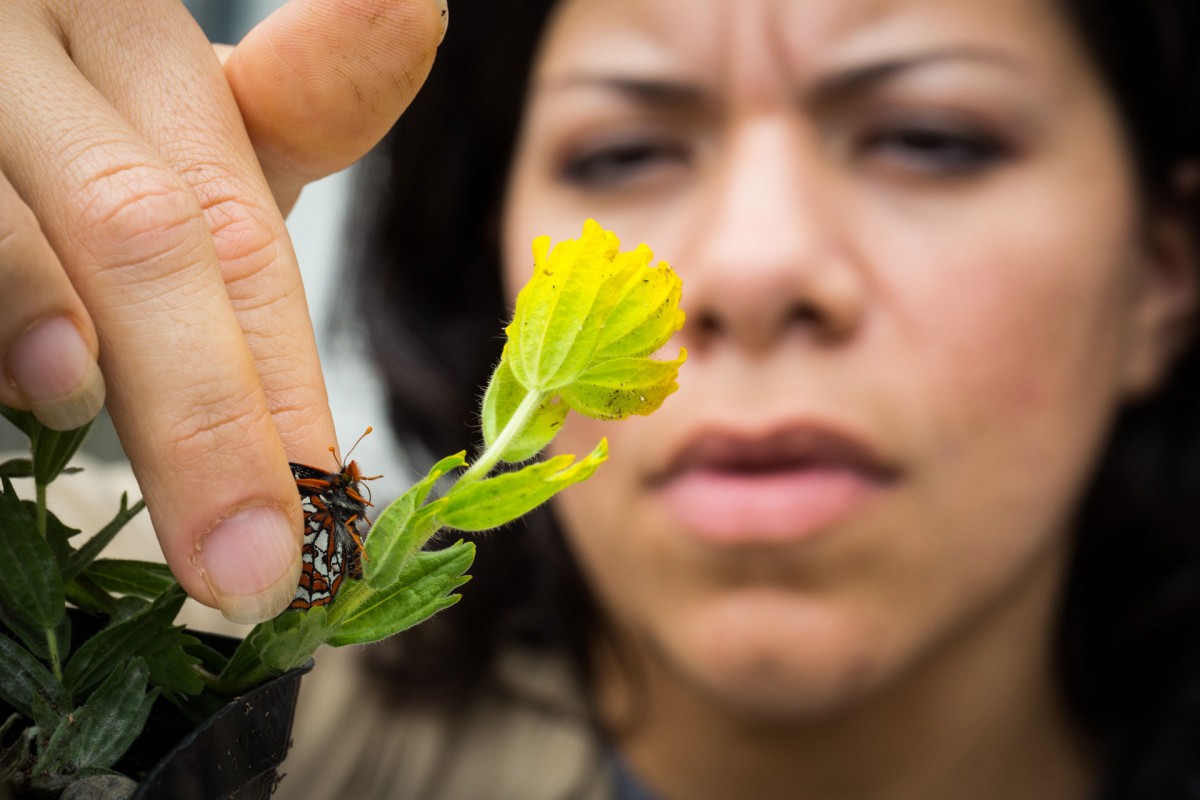
While she was a technician for SPP, Carolina Landa coauthored a paper (in review) on egg-laying preferences of endangered Taylor’s checkerspot butterflies; now she’s an environmental studies student on the Olympia campus! Photo by Benj Drummond & Sara Joy Steele.
SPP’s model is born out of Evergreen’s values. SPP’s four managers are Evergreen graduates, grad students coordinate many of our programs, an Evergreen faculty member co-directs SPP, and many of the DOC staff in our programs are also Greener Grads. Our approach exemplifies Evergreen’s Five Foci:
- Interdisciplinary Study: incarcerated students, DOC staff, and partners tackle complex, real-world issues (environmental, social, & economic) with diverse expertise.
- Collaborative Learning: we share learning and break down isolation by seeking input from all concerned parties and finding common ground.
- Learning Across Significant Differences: we recognize, respect, and bridge differences between academics, incarcerated adults, partners, and correctional staff; everyone’s ideas have value.
- Personal Engagement: we develop our capacity to evaluate, speak, and act on the basis of reasoned beliefs informed by attentive listening, observation, and investigation.
- Linking Theory with Practical Applications: we test abstract theories by putting them into practice in demanding, real-world situations.
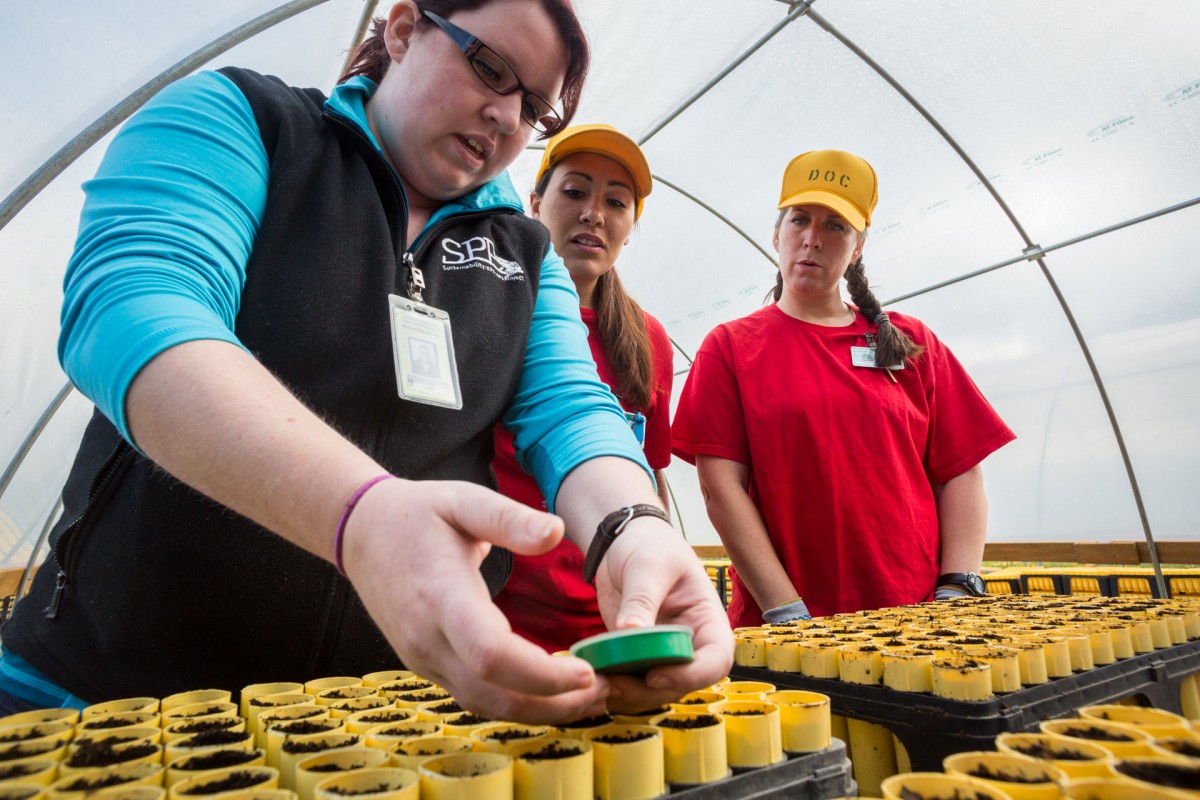
MES grad ‘15 and nursery program coordinator Bri Morningred demonstrates sowing native prairie seeds to conservation technicians. Photo by Benj Drummond & Sara Joy Steele.

SPP’s conservation programs attract frequent attention from the media; here, NPR’s Tom Banse interviews the prairie conservation nursery crew at Stafford Creek Corrections Center. Photo by MES student Ricky Johnson.

